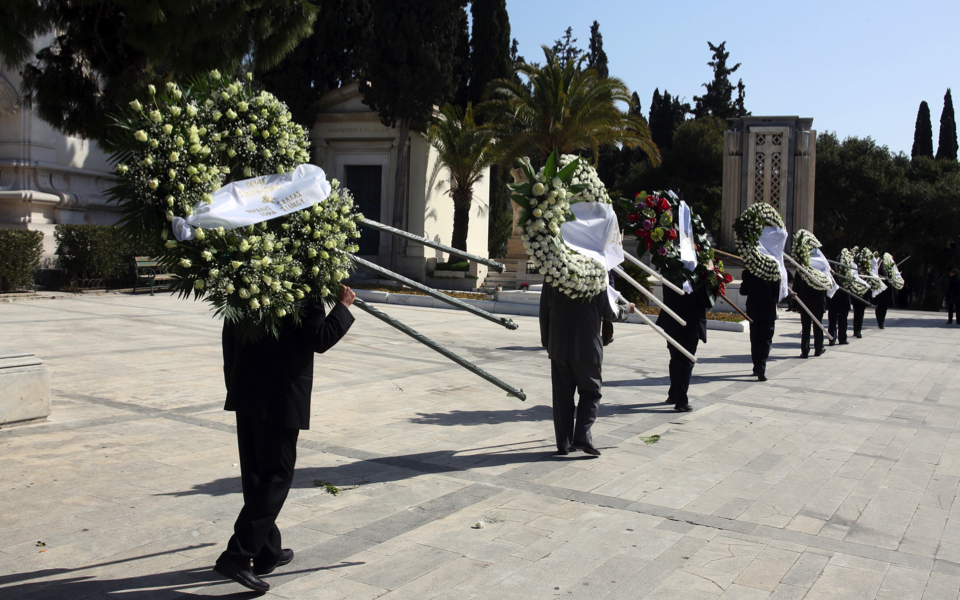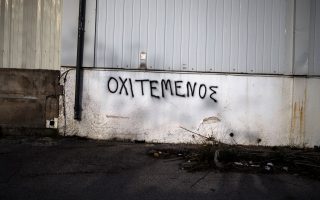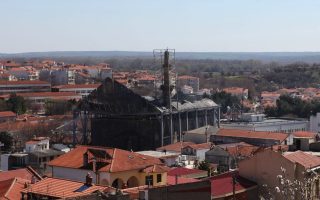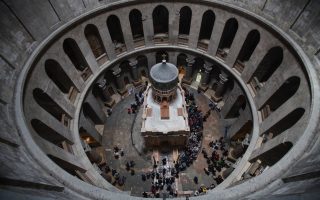Two crematorium projects in the pipeline in Athens and Patra

“I hope you never have to experience anything like it, my dears.” A friend’s mother passed away recently. Up until her death, when she was more than 90 years old, she had insisted that her body be cremated, having gone through the painful experience of burying her father’s remains when she was 40. The family obliged, transporting her body to Bulgaria, where she was cremated. Carrying out her last wish came at no small cost for the family in both psychological and financial terms – fees for transporting the body to Bulgaria and the cremation itself start from around 1,500 euros, and that doesn’t include the funeral service.
“According to data provided to us by funeral homes that organize cremations, the number of deceased transported to Bulgaria annually has risen to around 3,000 to 4,000, since Greece doesn’t have any crematoriums. A few years ago that number was just 1,000,” Antonis Alakiotis, president of the Committee for the Right of Cremation in Greece, told Kathimerini.
“With more and more people choosing to be cremated after death – both in Greece and internationally – it is unacceptable that families are forced to have their loved ones cremated abroad,” he added.
Cremations were legalized in Greece in 2006. More than 10 years later, though, not a single cremation has taken place in Greece, because no crematoriums have been built yet.
However, that looks set to change as a government amendment passed last month permits the construction of cremation centers on pieces of land for public services. Today, two crematoriums are in the planning stage, one in Athens, on a plot of land belonging to the municipality in Eleonas, and another in Patra, southwestern Greece.
Deputy Athens Mayor Nelly Papachela assured Kathimerini that the capital’s crematorium will not be a source of air pollution (including smells). “We are strictly adhering to European Union standards and regulations, while also planting trees in the surrounding area. The closest residence is 1.5 kilometers away,” she said. The project was recently granted approval by the city council. “Studies regarding the economic and technical aspects are complete, and construction could get under way by early 2018,” Papachela noted. “The facilities are expected to take up about 800 square meters, on 1.8 hectares of land, with construction costs estimated at about 1.5 million euros, covered by public-private partnerships.”
The City of Athens estimates that the construction will be completed within about three years.
In Patra, the municipality foresees the creation of a cremation center in the Glafkos Industrial Park. “We are waiting for modifications to the city plan, as a biological treatment plant had been planned for the 1.2-hectare plot, which is no longer necessary, since the area has been connected to Patra’s central waste treatment plant,” Pavlos Stamos, the deputy mayor of Patra, told Kathimerini.
“This is an important project, intended to satisfy the rights and needs of our fellow citizens. The Municipality of Patra has decided [the crematorium] will be created by the municipality, and we are currently in search of funding. Calculating that each cremation will cost about 500 euros – or in any case no more than 700 euros, which is how much it costs in Sofia – we should break even in three to four years. The construction costs are estimated at 1.5 million euros,” added Stamos. According to the deputy mayor, the crematorium will be a tastefully designed public building of about 800-900 square meters, while there will also be a car park and a large green area.
In many parts of Europe, cremation is more common than burial. In Switzerland, the cremation rate is 87.5 percent, in Denmark it’s 81 percent, in Sweden 80 percent, the UK 75 percent, Germany 55 percent and Portugal 50.5 percent.
‘The Church’s position is clear’
“The position of the Church of Greece is clear: The deceased should be buried and it is against the construction of incinerators in cemeteries, a motion His Beatitude will also support and which we believe will be respected by the relevant institutions,” Dorotheos II, Metropolitan of Syros, told Kathimerini. “The Church respects the freedom of every individual to live their lives and their desires at the end of their biological life on Earth. Of course, the state has the authority to legislate, but the Church has its teachings, from which it will not waver, and will always, in a peaceful and instructive manner, tell politicians and political operatives what it believes is right.”
“From the anthropology of the Old Testament, but also from the heroism of Antigone, who chose to die rather than leave her brother unburied, the Church was taught to bury the dead and deliver them to the common mother of all peoples, the Earth, from which God created Adam. The Burial and Resurrection of Jesus Christ is undeniable proof of this,” noted the metropolitan. “Every other form of disposal of the human body is considered by the Church violent and insulting to human agency.”





